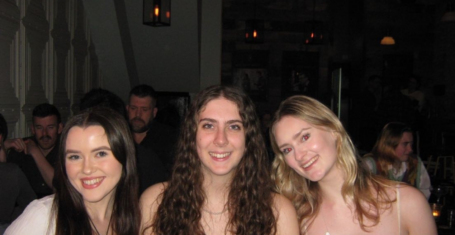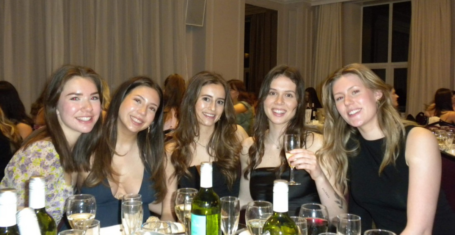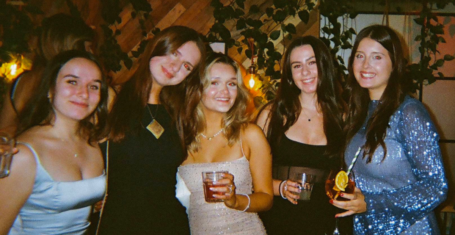
Your Future Employer Likes This
Editor in exile Ben Stupples tackles student use of social media.
Every university student using social media nowadays is part of what journalists worldwide call Generation Facebook. Having used it for several years already, the majority of us are naturally aware of its negative aspects (such as receiving friend requests from complete strangers).
However, being conscious of the downsides to social media does not mean we have become invulnerable to them. In August 2012, a third-year Economics student at University of Birmingham went to a Caribbean-themed party wearing an afro-wig with his skin painted black. Once a photo of him in this attire recently emerged on Facebook, a racism debate rapidly ensued at University of Birmingham – an institution where nearly a third of its undergraduates come from a Black, Asian or minority ethnic background – and he was eventually forced to make a public apology and resign from him position as President of the Christian Union.
Ten years ago, before the inception of Facebook (2004) and the subsequent arrival of other social media (such as Twitter), this scandal would probably not have happened; hardly anyone would ever have seen the offending photo. The success of social media subsists on a willingness to disclose content that may have remained relatively private in the past (party photos, for instance).
Broadcasting such material to our friends and followers is generally one of the most positive aspects to social media, giving us each a unique means through which we can express ourselves and communicate with others. However, as the case of the Birmingham student demonstrates, there is a sensitive balance between what our respective audiences regard as appropriate and downright offensive.
In ‘1984’, arguably his most accomplished work, George Orwell satirises the ubiquitous surveillance of a totalitarian government in the dystopian novel, a theme epitomised by the all-seeing, all-knowing Big Brother. The means through which the ruling government – The Party – maintains its unrelenting control over its citizens is technology, specifically television. ‘With the development of television’, writes Orwell, ‘and the technical advance which made it possible to receive and transmit simultaneously on the same instrument, private life came to an end’.
Today, supported by the fact we can access it easily on any Internet-connected device (mobile phones, laptops, home computers), the same can also be said for social media. It is just as pervasive as the telescreens Orwell conceived in ‘1984’ in order to encapsulate his concern over the emergence of television – still a relatively new invention in 1948 (note the swap of numerals), the year the satirical novel was published.
Facebook, for instance, automatically keeps track of our respective locations through the photos in which we feature, whilst it also greets us with the question: ‘What are you thinking?’ There are significant differences between the furtive surveillance Orwell portrays in ‘1984’ and our use of social media, though: we students are not members of a totalitarian regime; nor are we invading the privacy of others with the intent of discovering wrongdoing.
However, as the Birmingham ‘blacking up’ scandal suggests – one that stemmed from social media, we do indeed observe each other online. This can make us feel insecure, perhaps even paranoid about what others think of us. Consider how aware of social media we can be nowadays whilst posing for photos, for instance. like Winston Smith, the persecuted protagonist of ‘1984’, we are conscious of being under surveillance.
Besides our friends and family, there is another group of individuals of whom we students should be mindful on social media, perhaps more so than any other: our potential employers. In a recent study on the importance of social media for companies in their hiring procedures, 91% said they used it to screen perspective employees; 69% said they had rejected a candidate because of what they saw about them.
Consequently, although doing so at the time may seem side-splittingly funny, the bleary-eyed images some of us upload onto social media of our drunken behaviour during ‘heavy’ nights out may not be the most astute decision, particularly with ‘posted content about them drinking’ being a possible reason for an applicant’s rejection.
‘Many young people do not appreciate how an offensive comment or embarrassing photograph can create an indelible stain on an individual’, says one board member of a multinational firm, ‘and how it can subsequently become an impediment for them successfully applying for a position for which they are otherwise perfectly suited.’
We post such inappropriate material because of the freedom social media seems to permit us – a freedom that can have a negative effect on our public image as a result. However, when it is used responsibly, social media can equally enhance our employment chances: 68% of companies say they hire candidates after seeing them on social media, with giving ‘a positive impression of their personalities’ as the most popular reason for doing so.
Companies, it seems, are attempting to gain as much information as they can about us through social media – and why not? By uploading personal details onto social media, we publicise them on one of the most public domains in the world: the internet.
Consequently, we should all be mindful of the image of ourselves we portray through social media. If we are, and thus use social media sensibly, it is something we can easily manipulate to our advantage.









































